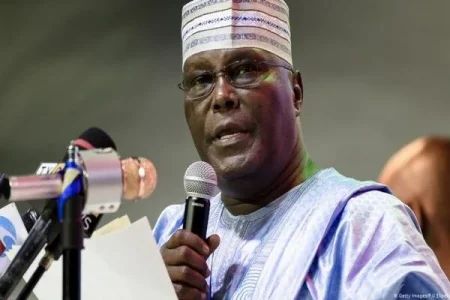
Allegations surface as Binance CEO reveals Nigerian officials demanded cryptocurrency bribes to release detained executives. Shocking revelation sparks scrutiny amid rising tensions. Explore implications for Binance's operations and Nigeria's regulatory climate
In a development that has sent shockwaves through the cryptocurrency community, Binance CEO Richard Teng revealed in a detailed blog post that unknown individuals demanded cryptocurrency bribes from Binance executives before their detention by Nigerian authorities. The detention of these executives, Tigran Gambaryan and Nadeem Anjarwalla has sparked outrage and raised serious questions about the intersection of cryptocurrency, corruption, and international business relations.
The saga began with a series of interactions between Binance executives and Nigerian regulatory authorities. According to Teng, Binance had attempted to engage with Nigerian officials to resolve regulatory concerns, culminating in a meeting in Abuja involving approximately 30 Nigerian agencies. However, despite these efforts, the situation took a dramatic turn when Binance executives were allegedly approached by unknown individuals seeking cryptocurrency bribes to "make the issues go away."
Teng's blog post provides a detailed account of the events leading up to the detention of Gambaryan and Anjarwalla. He recounts how the Binance team tried to navigate the complex regulatory landscape in Nigeria, only to be met with demands for bribes that they deemed illegitimate. Despite refusing to pay these alleged bribes, the executives were detained by Nigerian officials from the Office of the National Security Adviser (ONSA), prompting Binance to suspend certain trading activities in response to the incident.
The detention of Gambaryan and Anjarwalla has raised serious concerns about the rule of law and the integrity of Nigeria's regulatory environment. It has also cast a shadow over Binance's operations in Nigeria, with the cryptocurrency exchange facing legal challenges from the Federal Inland Revenue Service (FIRS) for alleged tax evasion. These developments have put Binance and its executives at the center of a complex and rapidly evolving legal and regulatory landscape in Nigeria.
Nigerian reactions to the allegations have been mixed, with some expressing shock and disbelief, while others have cited bribery as a common practice in the country. This sentiment underscores the challenges faced by businesses operating in Nigeria, where corruption remains a significant issue despite efforts to combat it.
Meanwhile, Binance has vowed to cooperate fully with Nigerian authorities and has called for the immediate release of its detained executives. In a statement, the cryptocurrency exchange reiterated its commitment to compliance with all relevant laws and regulations and expressed hope for a swift resolution to the situation.
As the saga continues to unfold, all eyes are on Nigeria and its response to these serious allegations. The detention of Gambaryan and Anjarwalla has raised important questions about the role of cryptocurrency exchanges in the country and the challenges they face in navigating its regulatory landscape.




